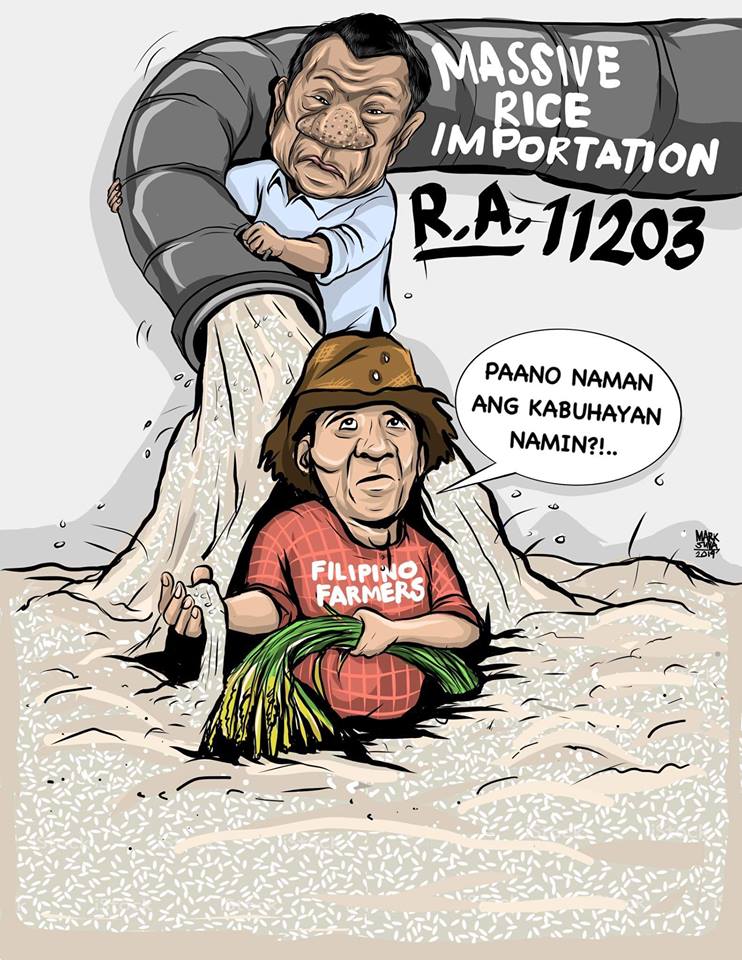World biggest rice importer? Peasant group renews call to junk liberalization law
By JOHN AARON MARK MACARAEG
Bulatlat.com
MANILA – A peasant group has reiterated its call for the repeal of Republic Act No. 11203 or the Rice Liberalization Law as the country is set to be the world’s biggest rice importer.
Peasant women group Amihan, citing data from the United States Department of Agriculture (USDA), said the Philippines will be importing up to three million metric tons this year, beating China’s 2.5 million tons.
China’s population is 13 times more than the Philippines.
In a statement, Cathy Estavillo, Amihan secretary general, said, “This is an epic failure of the Duterte government, when rice sources are supposed to be within the country, but his policies made this distant and even at the discretion of foreign traders colluding with local big traders, who will eventually dictate supply and prices in the domestic market.”
The Rice Liberalization Law was signed February this year to supposedly reduce the price of rice by removing the quantitative restrictions on rice imports.
This, however, only resulted in the falling farmgate price of palay, which fell to as low as P7 in Central Luzon.
Estavillo, also spokesperson of consumer group Bantay Bigas, underscored that they have repeatedly warned that “RA 11203 will turn Filipinos into beggars of imported rice.” “We all have witnessed this law causing bankruptcy to rice farmers, and this will lead to displacement and ultimately declined productivity,” added Estavillo.
The peasant rights advocate also said that becoming the world’s biggest rice importer in a mainly agricultural country is an obvious failure of the government to provide “food on the table.”
“We reiterate, Rice Liberalization Law is anti-peasant and anti-Filipino. It is an economic and social crime against Filipinos as it threatens our inalienable right to food and food sovereignty,” Estavillo said. #

